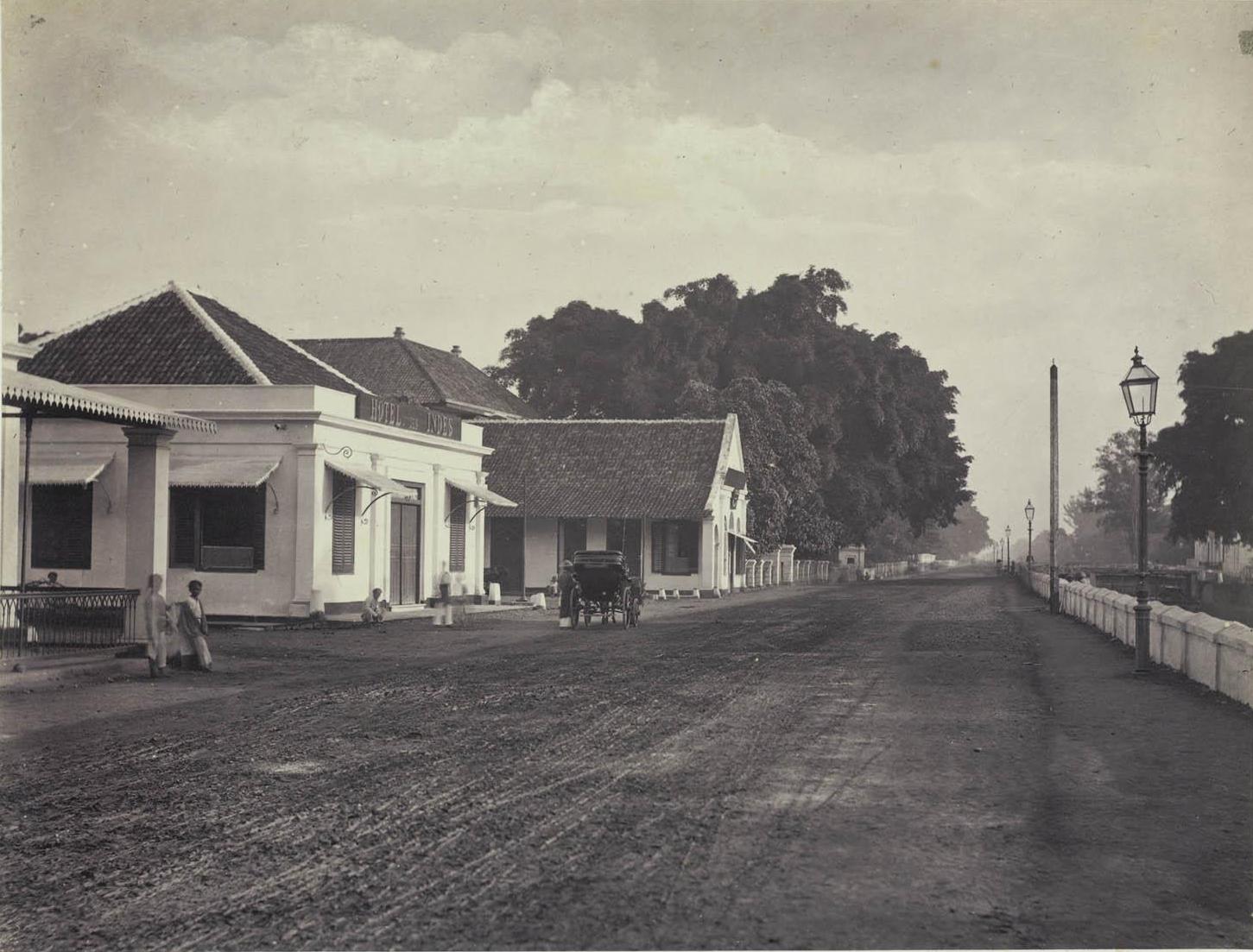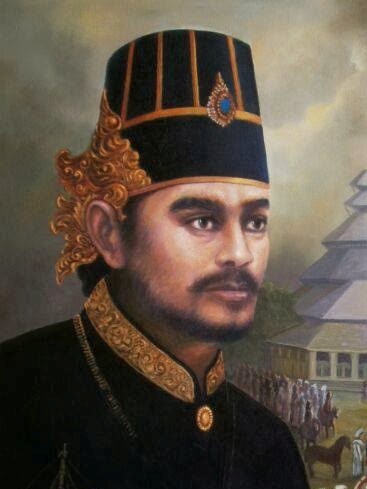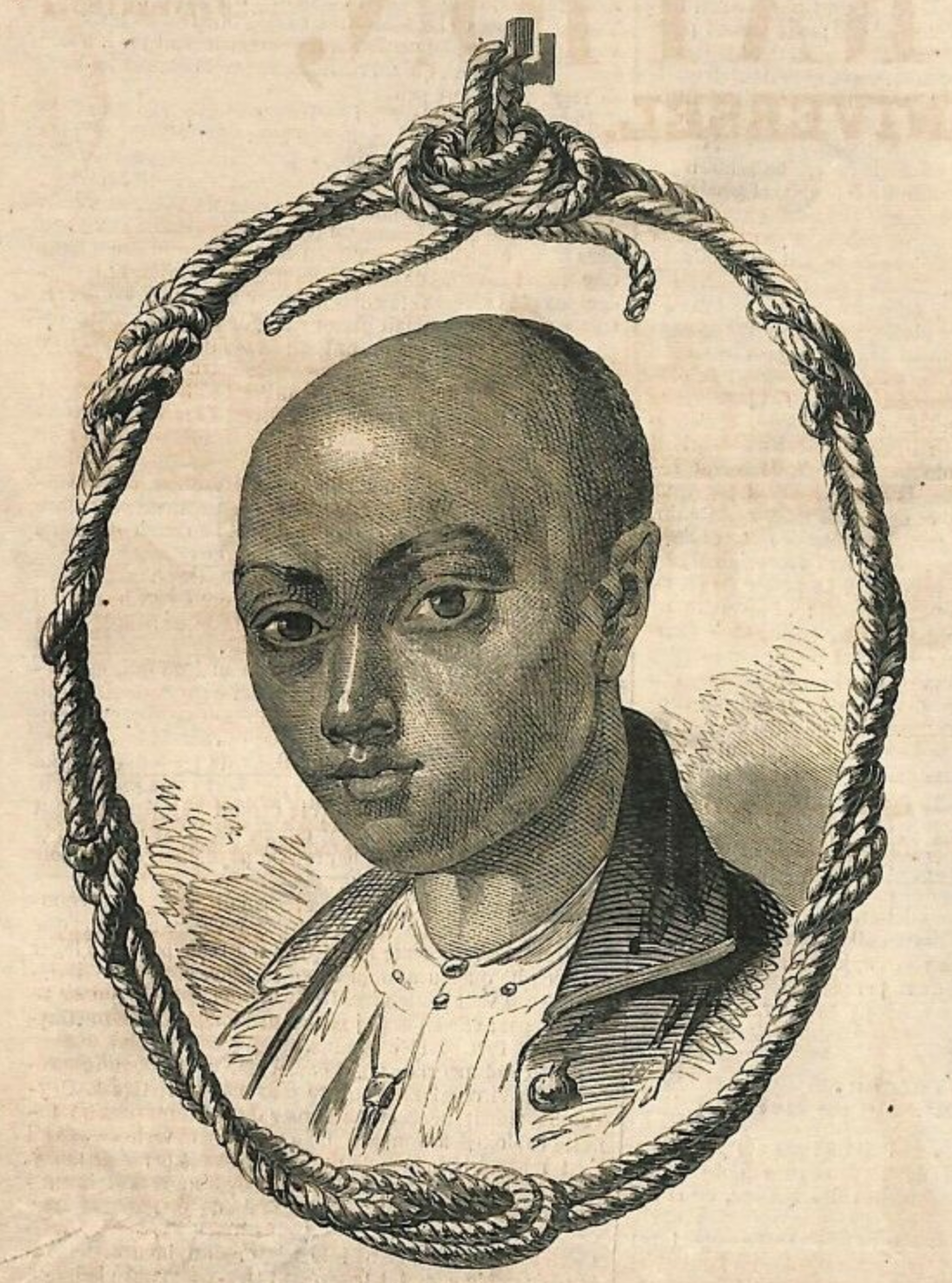|
Lie Tjoe Hong
Lie Tjoe Hong, 3rd Majoor der Chinezen (; 1846–1896) was a Chinese-Indonesian bureaucrat who served as the third Kapitan Cina, ''Majoor der Chinezen'', or Chinese headman, of Batavia, Dutch East Indies, Batavia, now Jakarta, capital of Indonesia. This was the most senior Chinese position in the colonial civil bureaucracy of the Dutch East Indies. As Majoor, Lie was also the Chairman of the Kong Koan, Chinese Council of Batavia (Dutch language, Dutch: ''Chinese Raad''; Bahasa Indonesia: ''Kong Koan''), the city's highest Chinese government body. Life Lie Tjoe Hong ''Sia'' was born in 1846 in Batavia into the Lie family of Pasilian, an eminent landowning family of the 'Cabang Atas, Tjabang Atas' gentry with a tradition of public service. His father, Lie Pek Thaij (1809 - 1848), was an honorary Kapitein der Chinezen, while his grandfather, Lie Tiang Ko (1786 - 1855) had the rank of der Chinezen (1847 - 1850), then Kapitein-titulair der Chinezen (1850 - 1855) under Tan Eng Goan, ... [...More Info...] [...Related Items...] OR: [Wikipedia] [Google] [Baidu] |
Leiden University
Leiden University (abbreviated as ''LEI''; nl, Universiteit Leiden) is a Public university, public research university in Leiden, Netherlands. The university was founded as a Protestant university in 1575 by William the Silent, William, Prince of Orange, as a reward to the city of Leiden for its Siege of Leiden, defence against Spanish attacks during the Eighty Years' War. As the oldest institution of higher education in the Netherlands, it enjoys a reputation across Europe and the world. Known for its historic foundations and emphasis on the social sciences, the university came into particular prominence during the Dutch Golden Age, when scholars from around Europe were attracted to the Dutch Republic due to its climate of intellectual tolerance and Leiden's international reputation. During this time, Leiden became the home to individuals such as René Descartes, Rembrandt, Christiaan Huygens, Hugo Grotius, Baruch Spinoza and Baron d'Holbach. The university has seven academic f ... [...More Info...] [...Related Items...] OR: [Wikipedia] [Google] [Baidu] |
Chinese-Indonesian
Chinese Indonesians ( id, Orang Tionghoa Indonesia) and colloquially Chindo or just Tionghoa are Indonesians whose ancestors arrived from China at some stage in the last eight centuries. Chinese people and their Indonesian descendants have lived in the Indonesian archipelago since at least the 13th century. Many came initially as sojourners (temporary residents), intending to return home in their old age. Some, however, stayed in the region as economic migrants. Their population grew rapidly during the colonial period when workers were contracted from their home provinces in Southern China. Discrimination against Chinese Indonesians has occurred since the start of Dutch colonialism in the region, although government policies implemented since 1998 have attempted to redress this. Resentment of ethnic Chinese economic aptitude grew in the 1950s as Native Indonesian merchants felt they could not remain competitive. In some cases, government action propagated the stereotype that e ... [...More Info...] [...Related Items...] OR: [Wikipedia] [Google] [Baidu] |
Grogol
Grogol is an urban administrative village in the Grogol Petamburan subdistrict of West Jakarta, Indonesia. The triangle-shaped administrative village is bounded by the West Flood Canal to the east, Jakarta Inner Ring Road to the west, and Jalan Kyai Tapa to the south. It was among the first Jakarta's planned suburb established during the 1960s. As of 2004 it had a population of 27,896. It has postal code of 11450. History Grogol started as a lunatic asylum which was converted in a Japanese Internment Camp for civilians during World War II. Triangle-shaped Grogol began as a new residential suburb built on 25 hectares of land. This land has been allocated by the Jakarta city government in 1952 for housing, especially for public servants which includes a number of members from the parliament. The area was established around the 1960s. Grogol was located on the eastern side of the West Flood Canal and was designed to be flood-proof as a conscious effort to address Jakarta's ... [...More Info...] [...Related Items...] OR: [Wikipedia] [Google] [Baidu] |
Banten
Banten ( id, Banten; Sundanese: , romanized ''Banten'') is the westernmost province on the island of Java, Indonesia. Its capital city is Serang. The province borders West Java and the Special Capital Region of Jakarta on the east, the Java Sea on the north, the Indian Ocean on the south, and the Sunda Strait (which separates Java from the neighbouring island of Sumatra) on the west. The province covers an area of . It had a population of over 11.9 million in the 2020 census, up from about 10.6 million in 2010.Badan Pusat Statistik, Jakarta, 2021. The estimated mid-2021 population was 12.06 million.Badan Pusat Statistik, Jakarta, 2022. Formerly part of the province of West Java, Banten was declared a separate province in 2000. The region is the homeland of the Bantenese people, whose culture differs slightly from that of West Java's Sundanese people. The northern half (particularly the areas near Jakarta and the Java Sea coast) has recently experienced rapid rises in populatio ... [...More Info...] [...Related Items...] OR: [Wikipedia] [Google] [Baidu] |
Tanara
Tanara is a district in the Banten province on the island of Java Java (; id, Jawa, ; jv, ꦗꦮ; su, ) is one of the Greater Sunda Islands in Indonesia. It is bordered by the Indian Ocean to the south and the Java Sea to the north. With a population of 151.6 million people, Java is the world's mos ..., Indonesia. The Ci Durian, a river, enters the Java Sea at Tanara. As of 2010 the district was divided into the following villages: Notes Sources * * {{DEFAULTSORT:Tanara Districts of Banten ... [...More Info...] [...Related Items...] OR: [Wikipedia] [Google] [Baidu] |
Sia (title)
Sia () was a hereditary title of Chinese origin, used mostly in colonial Indonesia. It was borne by the descendants of Chinese officers, who were high-ranking, Chinese civil bureaucrats in the Dutch colonial government, bearing the ranks of ''Majoor, Kapitein'' or ''Luitenant der Chinezen'' (see: ''Kapitan Cina''). History As with other Chinese honorifics, the title 'Sia' came at the end of the title holder's name: for example, as in Oey Tamba ''Sia'' (1827 - 1856). The title was used not with its holder's surname, but with his given name, so ''Tamba Sia'' instead of ''Oey Sia''. In everyday speech, use of the title was often combined with other honorifics, such as ''Ako Sia'' ('elder brother Sia') or '' Baba Sia'' ('sir Sia'). Originally, the honorific was used in Imperial China to address certain senior mandarins, the relatives of a mandarin or descendants of the House of Koxinga, formerly the ruling dynasty of the Kingdom of Tungning. In colonial Indonesia, the honorific ... [...More Info...] [...Related Items...] OR: [Wikipedia] [Google] [Baidu] |
Tan Eng Goan
Tan Eng Goan, 1st Majoor der Chinezen (; 1802 – 17 September 1872) was a high-ranking bureaucrat who served as the first ''Majoor der Chinezen'' of Batavia (now Jakarta), capital of colonial Indonesia. This was the highest-ranking Chinese position in the civil administration of the Dutch East Indies. Life Background and early career Born in 1802, Majoor Tan Eng Goan came from an old family of the ''Cabang Atas'' aristocracy of colonial Indonesia. Many members of his family served as Chinese officers, part of the civil administration of the Dutch colonial government. He was the son of Kapitein Tan Peeng Ko ( in Batavia from 1792 to 1809 and from 1809 to 1812), and a nephew of Kapitein Tan Jap Long (appointed Luitenant in 1810, and Kapitein in 1811). Both Tan's father and uncle thus served as Chinese headmen and presided over the Chinese Council of Batavia. Tan was married at least four times, including to his first wife, Lie Pien Nio, a niece of Lie Tieuw Kong, who had su ... [...More Info...] [...Related Items...] OR: [Wikipedia] [Google] [Baidu] |
Cabang Atas
The Cabang Atas (''Van Ophuijsen Spelling System'': Tjabang Atas) — literally 'highest branch' in Indonesian — was the traditional Chinese establishment or gentry of colonial Indonesia. They were the families and descendants of the Chinese officers, high-ranking colonial civil bureaucrats with the ranks of ''Majoor'', ''Kapitein'' and ''Luitenant der Chinezen''. They were referred to as the baba bangsawan ��Chinese gentry’in Indonesian, and the ba-poco in Java Hokkien. As a privileged social class, they exerted a powerful influence on the political, economic and social life of pre-revolutionary Indonesia, in particular on its local Chinese community. Their institutional control of the Chinese officership declined with the colonial Ethical Policy of the early twentieth century, but their political, economic and social influence lasted until the Indonesian revolution (1945-1950). Origin of term The phrase 'Cabang Atas' was first used by the colonial Indonesian historia ... [...More Info...] [...Related Items...] OR: [Wikipedia] [Google] [Baidu] |
Lie Family Of Pasilian
The Lie family of Pasilian was an aristocratic Chinese-Indonesian family of landlords, officials and community leaders, part of the ‘ Tjabang Atas’ or the Peranakan Chinese gentry of the Dutch East Indies (now Indonesia). For over a century, from 1847 until the 1952, members of the family served as Chinese officers, producing a total of nine office-holders, including Lie Tjoe Hong, the third Majoor der Chinezen of Batavia (present-day Jakarta). The Chinese officership, consisting of the ranks of '' Majoor, Kapitein and Luitenant der Chinezen'', was an arm of the Dutch colonial government with administrative and judicial jurisdiction over the colony's Chinese subjects. Founding in colonial Indonesia The family line in Indonesia goes back to two Chinese-born or ''Totok'' settlers in Batavia, capital of the Indies, the brothers Lie Tiang Ko, later Kapitein-titulair der Chinezen (1786–1855) and Lie Tioe Ko. Having gained great wealth in business in the early nineteenth centur ... [...More Info...] [...Related Items...] OR: [Wikipedia] [Google] [Baidu] |
Hotel Des Indes 1875
A hotel is an establishment that provides paid lodging on a short-term basis. Facilities provided inside a hotel room may range from a modest-quality mattress in a small room to large suites with bigger, higher-quality beds, a dresser, a refrigerator and other kitchen facilities, upholstered chairs, a flat screen television, and en-suite bathrooms. Small, lower-priced hotels may offer only the most basic guest services and facilities. Larger, higher-priced hotels may provide additional guest facilities such as a swimming pool, business centre (with computers, printers, and other office equipment), childcare, conference and event facilities, tennis or basketball courts, gymnasium, restaurants, day spa, and social function services. Hotel rooms are usually numbered (or named in some smaller hotels and B&Bs) to allow guests to identify their room. Some boutique, high-end hotels have custom decorated rooms. Some hotels offer meals as part of a room and board arrangement. In Jap ... [...More Info...] [...Related Items...] OR: [Wikipedia] [Google] [Baidu] |


_en_Tek_Hwa_Seng_bij_Poeloe_Samboe_TMnr_10010680.jpg)




_and_his_family.png)
